Search Results
Showing results 141 to 160 of 370
A Day in the Life of a San Francisco Native Animal
Source Institutions
In this activity, students will learn some key information about a San Francisco native animal and then write a firsthand account of their experience from the perspective of that animal in the time be

The Desert Blooms!
Source Institutions
This activity attempts to clear up the common misconception that deserts are always hot, totally dry, and uninhabitable.

Harmless Holder
Source Institutions
Have you noticed the plastic rings that are used to hold six-packs of soda? Those rings are great for carrying cans, but they're real trouble when they become trash that animals can get tangled in.

Ocean Echolocation
Source Institutions
Use echolocation to find others and experience how whales’ senses have adapted to suit their environment. In pairs, learners are blindfolded and use containers filled with marbles to find each other.
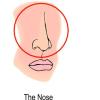
Smell Detective
Source Institutions
In this activity about olfaction (8th activity on the page), learners smell 10 different items with different odors. Then they try to identify the smells when they are mixed together.

Tasty Buds
Source Institutions
In this activity (1st activity on the page), learners explore their sense of taste and the structure of the tongue by taste-testing various foods.

Tactile Double Trouble
Source Institutions
In this activity (11th activity on the page), learners use their sense of touch to identify matching pairs of objects hidden in bags. Learners can also play this game with partners.

For Your Eyes Only
Learners build particulate matter collectors--devices that collect samples of visible particulates present in polluted air.
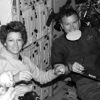
Nutritional Challenges
Source Institutions
In this nutrition activity (page 26 of PDF), learners consider the nutritional needs of people with specific dietary requirements, such as athletes, persons with diabetes and vegetarians, and create a
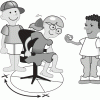
Vestibular-Ocular Reflex
Source Institutions
In this activity, learners will perform various investigations to understand the vestibular-ocular reflex and learn about the importance of visual cues in maintaining balance.
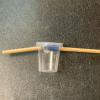
Make Pooter
Source Institutions
In this activity, learners will explore engineering to construct an insect collecting tool (insect aspirator). The pooter uses suction to safely collect smaller insects that nets miss or may injure.

Running on Empty
Source Institutions
In this exercise and nutrition activity, learners will explore how food is the fuel that powers them. They will create a chart to figure out how many calories they burn during recess.

What Do You Know About Microbes?
Source Institutions
This is a series of quick activities/demos and pre-assessment tools that evaluate learners' current understanding of microbes and introduce them to basic information about microbes.

Plankton Races
Source Institutions
In this two-part activity, learners investigate buoyancy, density and surface area as well as biodiversity and the relationship between the structure and function of organisms.

What's the Buzz?
Source Institutions
In this activity, learners construct a playable kazoo from inexpensive materials. They will experience how vibration creates sound waves and music.
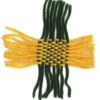
The Web of Life
Source Institutions
In this activity, learners examine ways that Native Americans of the Southwest express their relationship with nature through art.

Multitasking Mania
Source Institutions
In this activity, learners conduct scientific research on multitasking. Learners determine if multitasking with media while doing homework affects their ability to successfully complete the homework.
Pollution in Our Watershed
Source Institutions
By building a simple watershed with paper and markers and then using a spray bottle to simulate precipitation, learners will understand how pollution accumulates in our water sources, especially from
Leaves: Designing Leaf Arrangements on a Branch
Source Institutions
In this hands-on activity, learners investigate the functional design of leaves on a tree.
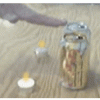
Phantom Phlame
Source Institutions
In this trick, hold your hand over a burning candle without getting burned, by reflecting and transmitting the light of two candles. This activity is best suited as a demonstration.
